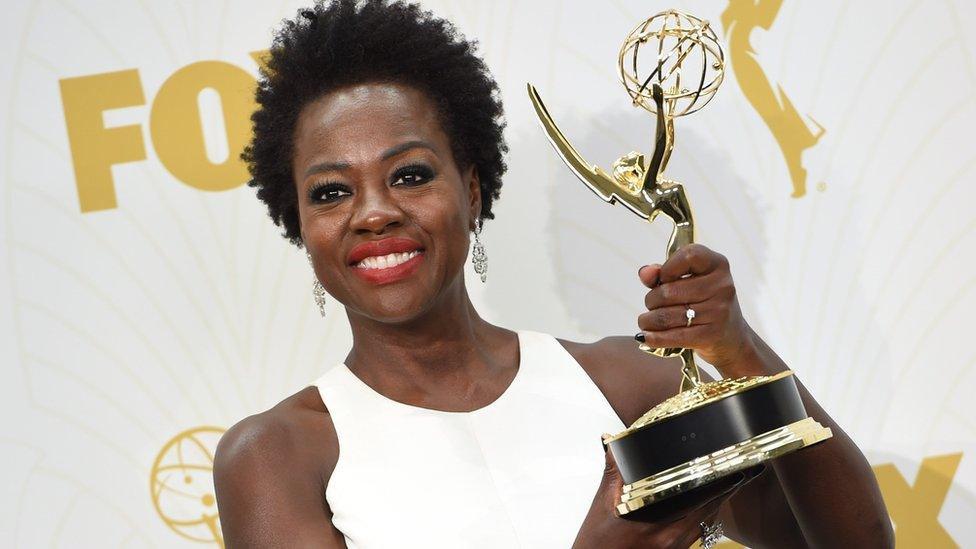Jada Pinkett Smith on Girls Trip's box office success
- Published
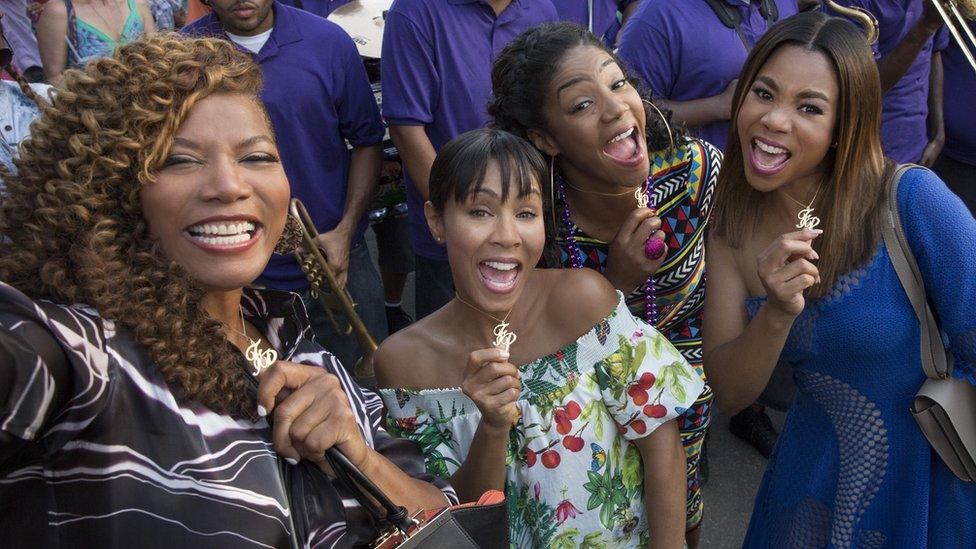
Female-driven comedy Girls Trip exceeded all expectations at the US box office when it was released last weekend - a fact its star Jada Pinkett Smith puts down to the power of laughter.
It made $31.2m (£23.9m) in its first three days, following behind Christopher Nolan's war epic Dunkirk which took $50.5m (£38.8m). That makes it the biggest opening weekend for any live-action comedy this year.
The film follows the story of four lifelong friends who re-unite for a weekend getaway in New Orleans.
The fact it's an R-rated comedy fronted by four women makes its success even sweeter for Pinkett Smith and co-stars Queen Latifah, Regina Hall and newcomer Tiffany Haddish.
"Laughter is universal, people love to laugh," Pinkett Smith told the BBC, commenting on the film's success.
"One woman is every woman and the themes in the film are universal, even though we could be different ages and experience different things."
'Black girl magic'
She said she was delighted to see women of all races enjoying the film, adding: "As women, the things we care about and some of the things happening in our lives will be similar and that is the success of the movie."
Girls Trip seems to have broken the R-rated curse following a summer of disappointing comedy films.
Will Ferrell and Amy Poehler's The House, about a couple that start an underground casino to put their daughter through university, opened to just short of $9m (£7m).
Baywatch also drowned over a public holiday weekend taking $18m (£13.8m) and a few weeks before that, Amy Schumer and Goldie Hawn's Snatched was considered a box office flop with its $19.5m (£15m) opening.
The last R-rated comedy to have been a worldwide sensation was The Hangover in 2009, which earned $45m (£34.5m) in its opening weekend in the US and $467m (£359m) worldwide.
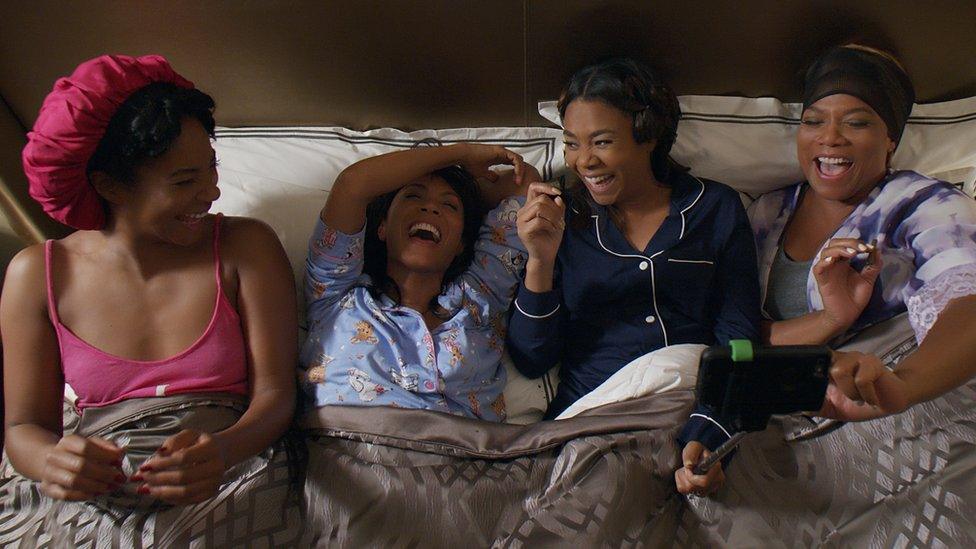
"Black girl magic is real - people want a piece of it," says director Malcolm D Lee
So what made Girls Trip immune to this comedy curse?
Director Malcolm D Lee puts it down to a little sprinkle of what he calls "black girl magic".
"Black girl magic is real - people want a piece of it, they want to see it, they want to be empowered by it," he told The Hollywood Reporter, external.
Another film that was praised for its black girl magic was Oscar-nominated Hidden Figures, which told the story of a team of female African-American mathematicians who served a vital role in Nasa during the early years of the US space programme.
After its opening weekend in 2016, its star Taraji P Henson - wrote on Instagram, external as it took the number one spot at the box office: "I have been told my entire career 'black women can't open films domestically or internationally'. Well, anything is possible."
Lee also alluded to film's success in relation to his own movie saying: "Four black women can open a movie and it does not have to be about the space program.
"Hidden Figures did extremely well and I'm extremely happy for that movie to have done that - it's unprecedented - but here we are for women who exist in real life and don't get an opportunity to see themselves like this."
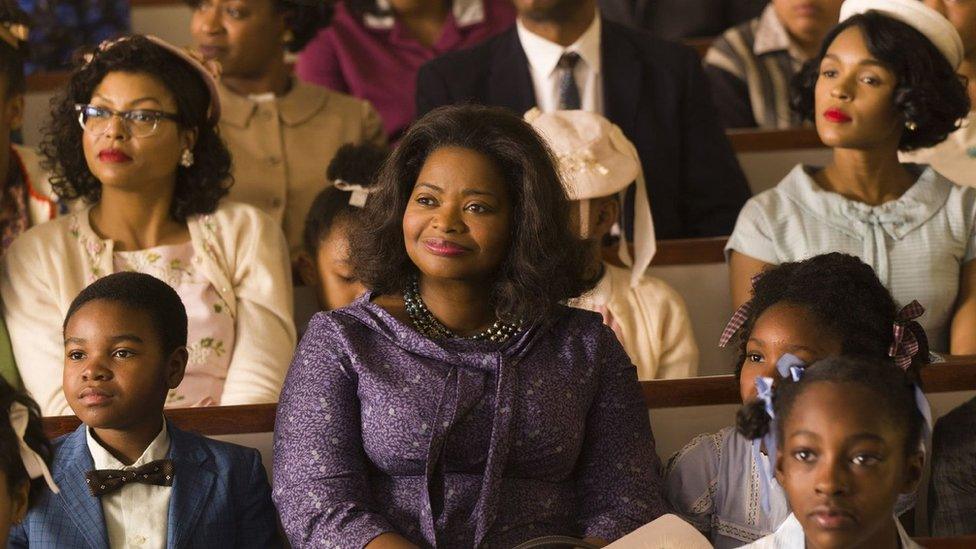
Hidden figures made just under $180m in the domestic box office
The success of films like Hidden Figures, Oscar-winning Moonlight and now Girls Trip always reignites the debate on social media about representation in film.
"Here we have the opportunity to see ourselves not as maids, slaves or receptacles for casual misogynoir (misogyny directed towards black women), but as autonomous beings who experience the fullness of joy and unadulterated happiness," says British writer and producer Danielle Dash.
"Girls Trip is important for black women because we are represented by women who look like us in roles that were written by people who look like us and other people we love."
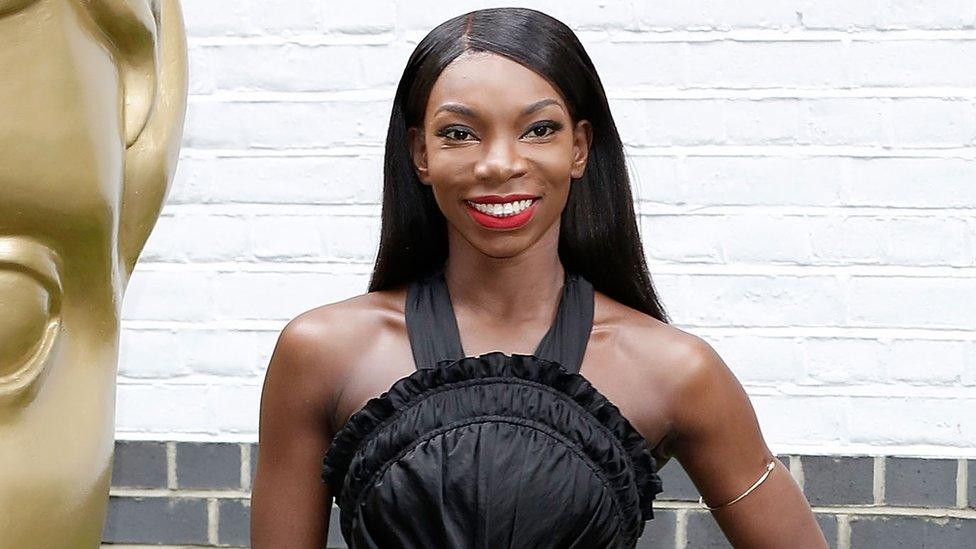
Michaela Coel won Baftas for best female performance in a comedy programme and best breakthrough talent for Chewing Gum
Whilst the success of directors and writers such as Get Out's Jordan Peele and Insecure's Issa Rae are important, the black experience in TV and film tends to be oversaturated by African-Americans, rather than coming from the British-black perspective.
This could be one of the many reasons Michaela Coel's Chewing Gum was such a popular success - she took home two Baftas for her work on the show in 2016.
Dash believes that when British TV and film industries give projects with black voices the same time and effort in development, the companies who commit to uplifting minority voices will reap the benefits financially.
And Pinkett Smith couldn't agree more.
"As much as we want the moral stakes to matter, it's a very profitable move," she says.
"I think that it being a deeply unexplored area will make for a very creative project that people will have deep interest in. We constantly realise that in the States.
"People are always interested in how other people live because some don't get to see that experience. You're really doing your creative culture a disservice by not highlighting those different cultures."
Girls Trip will be released in the UK on 26 July.

Follow us on Facebook, external, on Twitter @BBCNewsEnts, external, or on Instagram at bbcnewsents, external. If you have a story suggestion email entertainment.news@bbc.co.uk, external.
Related topics
- Published15 January 2017
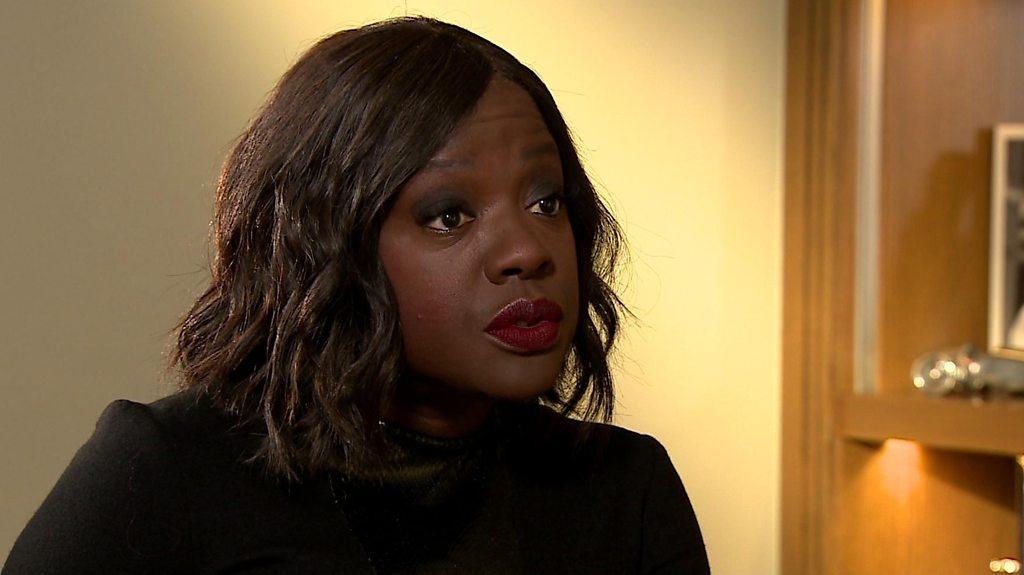
- Published11 September 2016
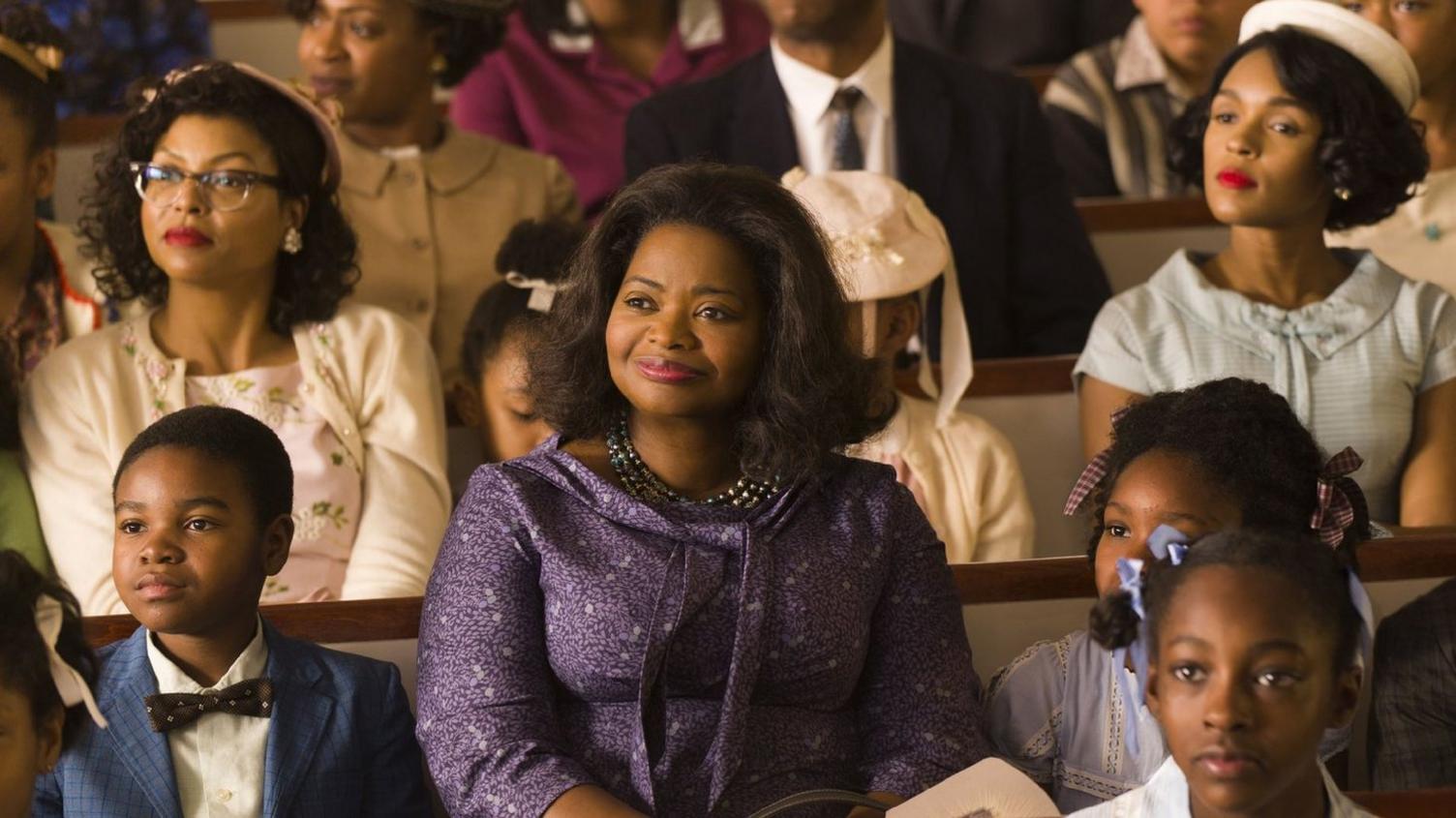
- Published21 September 2015
